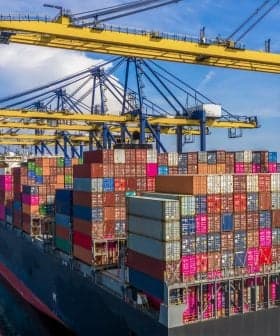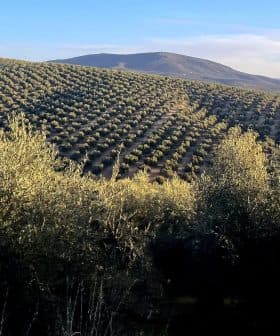Producer Prices Rally in Spain
The farmgate price for olive oil in Spain is rising due to expectations of a lean harvest season, with the price climbing from €1.87 per kg to €1.94. Production is expected to drop nationally next season by 50 percent, with Jaén and Granada facing declines of 70 and 65 percent, respectively.
The farmgate price for olive oil is finally on the up in world production leader Spain, which some are attributing to expectations that after three years of bumper harvests the next will be a lean one.
“The market knows there will be few olives to pick next season,” Diario Jaen said.
According to the POOLred price information system, the index price for olive oil has climbed from €1.87per kg on July 26 to €1.94 today (August 1).
The average price for bulk virgin olive oil was €1.67 per kg for the week to July 11 but rose to €1.92 per kg for the week to August 1, though with a lower volume and number of sales.
Drought casting shadow on coming harvest
The Andalusian Federation of Agricultural Cooperative Enterprises (FAECA) says it still expects a 50 percent production drop nationally next season while Jaén and Granada will be worst affected, with respective declines of 70 and 65 percent.
In a recent statement, FAECA said the causes of the dire forecasts were the combination of drought and the delayed impact of several years of abnormally high production — boosted by above-average rainfall — on the usual pattern of one year of higher yield followed by a lower one.
The latest report from Spain’s Olive Oil Agency (AAO), with data to June 30, shows Spain’s 2011/12 olive oil output reached a record 1.61 million tons, up 16 percent on last year’s. Exports — provisionally put at 640,600 tons to the end of June — are also at record level and total olive oil stocks stand at 1.06 million tons.
Spanish Consuming Less Olive Oil
According to a recent household survey in Spain, olive oil consumption was down 0.7 percent on a year ago for the twelve months to June while there was a slight increase — 0.1 percent — for sunflower oil and growth of 24.6 percent for other categories of edible oils combined.
European Commission Action Plan
In June, European Commissioner for Agriculture Dacian Cioloş said he hoped concrete changes would be agreed on by the end of July as part of his action plan for the olive oil sector but the measures have yet to be made public. However, as part of preparation for the plan and for the current reform of the EC’s Common Agricultural Policy (CAP) subsidy system, various EC reports have been produced on the industry, among them a market brief titled Prospects for the Olive Oil Sector in Spain, Italy and Greece — 2012 – 2020.
According to the forecast, olive oil production in Spain could reach 1.68 million tons by 2020, or up to 1.86 million tons in the case of extremely high yields. Per capita olive oil consumption is tipped to stay at about 13 kg/year. Spain’s olive oil stocks could increase to 881,000 tons by the end of 2020/21, it says.
Labeling
Changes to labeling rules for olive oil were among measures floated by Cioloş and the need for them was also raised in a recent written question in the European Parliament by Italian MEP Giancarlo Scottà.
Referring to EC regulation 182/2009’s requirements regarding indication of the origin of olives used to make extra virgin and virgin olive oil, Scottà said “Often this information can scarcely be read due to its position or the font used. Considering that most oils on the market are produced with mixtures of Italian, EU and non-EU olives, this lack of transparency creates unfair competition.”
“As a result, farmers who use only Italian olives have lower earnings than those who use mixtures of EU and non-EU olives without declaring it on the label. This is also bad for consumers, who are not properly informed about the origin of the product.” A response from the EC is yet to be posted.
Sources:
Diario Jaen (in Spanish)
POOLred
Andalusian Federation of Agricultural Cooperative Enterprises (FAECA) (In Spanish)










